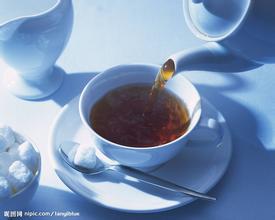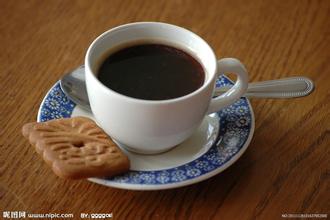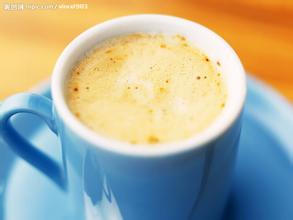Introduction to the Flavor and Taste characteristics of Brazilian Coffee Manor
On November 15, 1889, General Fonseca launched a coup d'état to overthrow the monarchy and establish the United States of Brazil. Under the slogan of "order and progress," the new government strengthened Brazil's modernization on the basis of a presidential system, producing three-quarters of the world's coffee and creating economic success. Later, during the Great Panic of the 1930s, the "coffee economy" suffered a painful blow, and the subsequent coups, dictatorships, and constitutional monarchies plunged politics into chaos.
In 1964, the Brazilian military coup came to power, and in 1967, the name was changed to the Federative Republic of Brazil. In March 1985, the military government returned to power. On November 15, 1989, Brazil held its first direct elections in nearly 30 years and Fernando Collor was elected president. On December 29, 1992, President Color was forced to resign on suspicion of bribery, and Vice President Itamar Franco took over as President on that day. Fernando Henrique Cardoso won the national election on October 3, 1994 and became Brazil's 38th President on January 1, 1995. Cardoso was re-elected on October 4, 1998. On 1 January 1999, Cardoso assumed office as the 39th President of Brazil, serving until 31 December 2002.
In October 2002, Lula, the candidate of the left-wing coalition led by the Labor Party, won the election and became the first directly elected left-wing president in Pakistan's history. In October 2006, Lula defeated the Social Democratic candidate Alkmin and won re-election. In October 2010 Dilma Rousseff won the general election as the Labour Party candidate. On May 12, 2016, the Senate of Brazil passed an impeachment case against President Rousseff. Rousseff will be forced to leave office for up to 180 days, during which the presidency will be represented by Brazilian Vice President Michel Temer. [6]
Geographic environment editor
geographical location
map of Brazil
map of Brazil
Brazil is located in the southeast of South America, spanning 35 degrees west longitude to 74 degrees west longitude, 5 degrees north latitude to 35 degrees south latitude. It is bordered by the South Atlantic Ocean to the east and by any country in South America to the north, west and south (except Chile). It is bordered by Guyane française, Suriname, Guyana, Venezuela and Colombia to the north, Peru and Bolivia to the west, and Paraguay, Argentina and Uruguay to the south. The coastline is approximately 7400 km long. The breadth of the territorial sea is 12 nautical miles and the exclusive economic zone outside the territorial sea is 188 nautical miles. [7]
Brazil is the largest country in South America, with a territory area of 8,514,900 square kilometers, accounting for 46% of the total area of South America, ranking fifth in the world after Russia, Canada, China and the United States. Brazilian coffee comes in many varieties, and like other Arabica coffees, Brazilian coffee is known as
"Brazils" is distinguished from "Milds" coffee. The vast majority of Brazilian coffee is unwashed and sun-dried, and is classified according to the state of origin and port of shipment. Brazil has 21 states, 17 states produce coffee, but four of them produce the most, accounting for 98% of Brazil's total production: Parana, Sao Paulo, Minas Gerais and EspiritoSanto. Parana in the south produces the most, accounting for 50% of the total.
Low-acidity, medium-roast coffee beans from the coffee center of the world.
Brazil has been figuratively compared to the coffee world's "giants" and "kings." There are about 3.97 billion coffee trees, and small farmers now grow 75 percent of Brazil's coffee. Brazil has twice or even three times as many coffee producers as Colombia, which is the world's second-largest coffee producer.
Unlike in the past, Brazil's economy is now less dependent on coffee, which accounts for only 8 - 10% of GDP. Before World War II, Brazil accounted for 50% or more of the world's coffee production, and now it is close to 30%, but the country's influence on coffee worldwide, especially on coffee prices, is significant. For example, two frosts in 1994 caused a sharp rise in global coffee prices.
Coffee production has gradually become a science since the introduction of coffee trees from Guyane française in 1720. Before 1990, the Brazilian government strictly controlled the coffee industry, with both severe interference and price protection measures, and the state has always implemented minimum price protection measures for farmers, resulting in coffee overproduction. At one point before World War II, there were 78 million bags left in stock, which had to be burned or thrown into water.
Since 1990, when the free market opened up, the former Brazilian Coffee Authority (IBC) has been replaced by a non-investment administrative body of the state, the National Economic Association, which pursues a policy of non-interference and allows producers to negotiate directly with exporters. The activities of exporters are monitored by government legislation and legal exporters are registered by the relevant authorities.
Brazil, the largest producer of coffee, accounts for one-third of global consumption of all grades and varieties, and has a place in the global coffee market. Although Brazil faces many times more natural disasters than other regions, its arable area is enough to compensate.
There are many kinds of coffee here, but its industrial policy is large and cheap, so there are not many excellent coffee, but it is a good choice to mix other coffees.

Important Notice :
前街咖啡 FrontStreet Coffee has moved to new addredd:
FrontStreet Coffee Address: 315,Donghua East Road,GuangZhou
Tel:020 38364473
- Prev

Introduction to the flavor and taste characteristics of the manor producing area in Nicaragua's boutique coffee bean producing area
On 18 August 1986, the Constitution of Nicaragua was adopted by the National Assembly and entered into force in January 1987. The Constitution was amended three times in February 1995, January 2000 and December 2004. According to the Constitution, Nepal is an independent, free, autonomous, unified and indivisible country; the central authority of the state is composed of the President, the National Assembly, the Supreme Court and the Supreme Election Commission; and the President and members are elected.
- Next

The flavor of wine the flavor and taste characteristics of Kenyan coffee manor introduce the fine coffee beans.
Kenya has a total population of 41.8 million (2013), with a population growth rate of 2.7 per cent. There are 42 ethnic groups in the country, including Kikuyu (17%), Lucia (14%), Kalenjin (13%), Luo (10%) and Kangba (10%). In addition, there are a small number of Indians and Palestinians, Arabs and Europeans. [5] 5.82646 billion square kilometers of Kenya
Related
- Detailed explanation of Jadeite planting Land in Panamanian Jadeite Manor introduction to the grading system of Jadeite competitive bidding, Red bid, Green bid and Rose Summer
- Story of Coffee planting in Brenka region of Costa Rica Stonehenge Manor anaerobic heavy honey treatment of flavor mouth
- What's on the barrel of Blue Mountain Coffee beans?
- Can American coffee also pull flowers? How to use hot American style to pull out a good-looking pattern?
- Can you make a cold extract with coffee beans? What is the right proportion for cold-extracted coffee formula?
- Indonesian PWN Gold Mandrine Coffee Origin Features Flavor How to Chong? Mandolin coffee is American.
- A brief introduction to the flavor characteristics of Brazilian yellow bourbon coffee beans
- What is the effect of different water quality on the flavor of cold-extracted coffee? What kind of water is best for brewing coffee?
- Why do you think of Rose Summer whenever you mention Panamanian coffee?
- Introduction to the characteristics of authentic blue mountain coffee bean producing areas? What is the CIB Coffee Authority in Jamaica?

